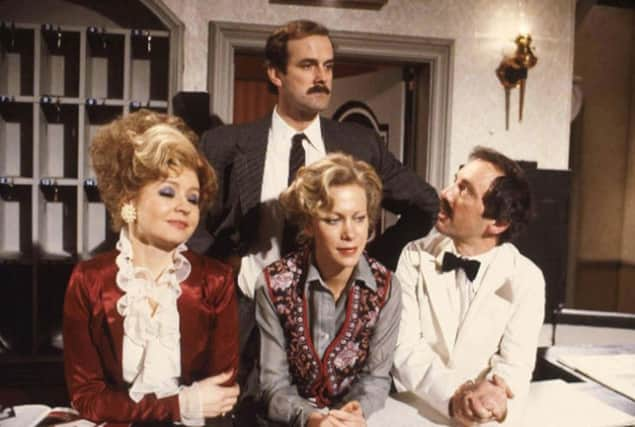What to do about those faulty hotels


We are all familiar with the experience of arriving at our fabulous holiday hotel, only to find it does not look much like the brochure. Some of you will have had such an experience this summer.
Inevitably this leads to guests posting on various websites, but invariably TripAdvisor, that having booked what they thought was a four or five-star hotel for a short break or holiday (or wedding reception), they discovered to their horror that the hotel, though it might have been the last word in 1965, now resembles a dilapidated high-rise block of flats ripe for controlled explosion.
Advertisement
Hide AdAdvertisement
Hide AdSo what legal options are available to paying guests who feel unhappy and short-changed by hotel or other holiday accommodation?
Many people will have booked through tour operators, in which case there may be a remedy against them. Under the Package Travel, Package Holidays, and Package Tour Regulations 1992, suppliers are liable directly to the customer for the proper performance of the items in the package. They are not allowed to describe it in a misleading way, and if they do they are liable to compensate the consumer for any losses suffered in consequence.
For online bookings, the first step would be to establish whether there might be an old-fashioned breach of contract. If the contract expressly states buyers will get a service they ultimately do not receive, they might have a claim. But in many cases, the agreement between holidaymaker and hotel will say nothing much about the standard of accommodation, and the real grumble will be about misleading advertising, flattering photographs, and exaggerated marketing claims.
At this stage the Consumer Protection from Unfair Trading Regulations 2008 are worth looking at. These state that unfair commercial practices (any act or omission, including advertising and marketing directly connected with the sale of a product to consumers, whether occurring before, during or after a commercial transaction) by a trader are prohibited.
A commercial practice is unfair if it contravenes the requirements of professional diligence, and materially distorts or is likely to materially distort the economic behaviour of the average consumer with regard to the product.
“Professional diligence” means the standard of care a trader may reasonably be expected to exercise towards consumers, in accordance with honest market practice and good faith. “Materially distort the economic behaviour” means to impair the average consumer’s ability to make an informed decision, thereby causing him to take a decision that he would not otherwise have taken.
Consequently, if a hotel sells a purportedly luxury package which the management knows – or ought to know – is not going to be provided, it is reasonable to say this is lacking in good faith and distorts the buyer’s behaviour, by building up expectations which are not going to be fulfilled.
A commercial practice is also unfair if it is a misleading action – for instance, where a hotel provides false information in relation to the main characteristics of the accommodation, and so causes customers to buy holidays they would not otherwise have bought. For example, if a hotel advertisement or website makes positive statements about sea views, short walks to the beach, easy access to local shopping, etc, while knowing the reality is otherwise, it might be in breach of this regulation.
Advertisement
Hide AdAdvertisement
Hide AdHowever, highly-coloured and fanciful language hotels might use about their luxuriousness, exclusivity, romantic locations or fine dining might not be considered by the courts to be clear enough to amount to a misleading action.
Omissions about the main characteristics of the product may also be a breach of the regulations.
There are certain remedies open to unhappy customers, but only when talking about a misleading action as described above. If customers can show the misleading action was a significant factor in their decision to enter into the contract, they have a right to a discount (a) if the prohibited practice was more than minor, of 25 per cent; (b) if significant, 50 per cent; (c) if serious, 75 per cent; and (d) if very serious, 100 per cent.
If customers have paid more than £5,000, the relevant percentage is the percentage difference between what the product was actually worth and the amount they actually paid. As to the extra cost of seeking alternative accommodation, customers can claim financial losses which wouldn’t have been incurred had the prohibited practice not taken place. However, I’d be surprised if claimants would get all their money back and also the entire cost of the alternative accommodation, since this would effectively mean a free holiday.
The 2008 Regulations are essentially European law put into British form. All EU countries have been under a duty to introduce similar rules, so if the holiday has been in the EU, the regulations, or something very similar, will apply.
• Richard Godden is a partner with Blackadders: www.blackadders.co.uk